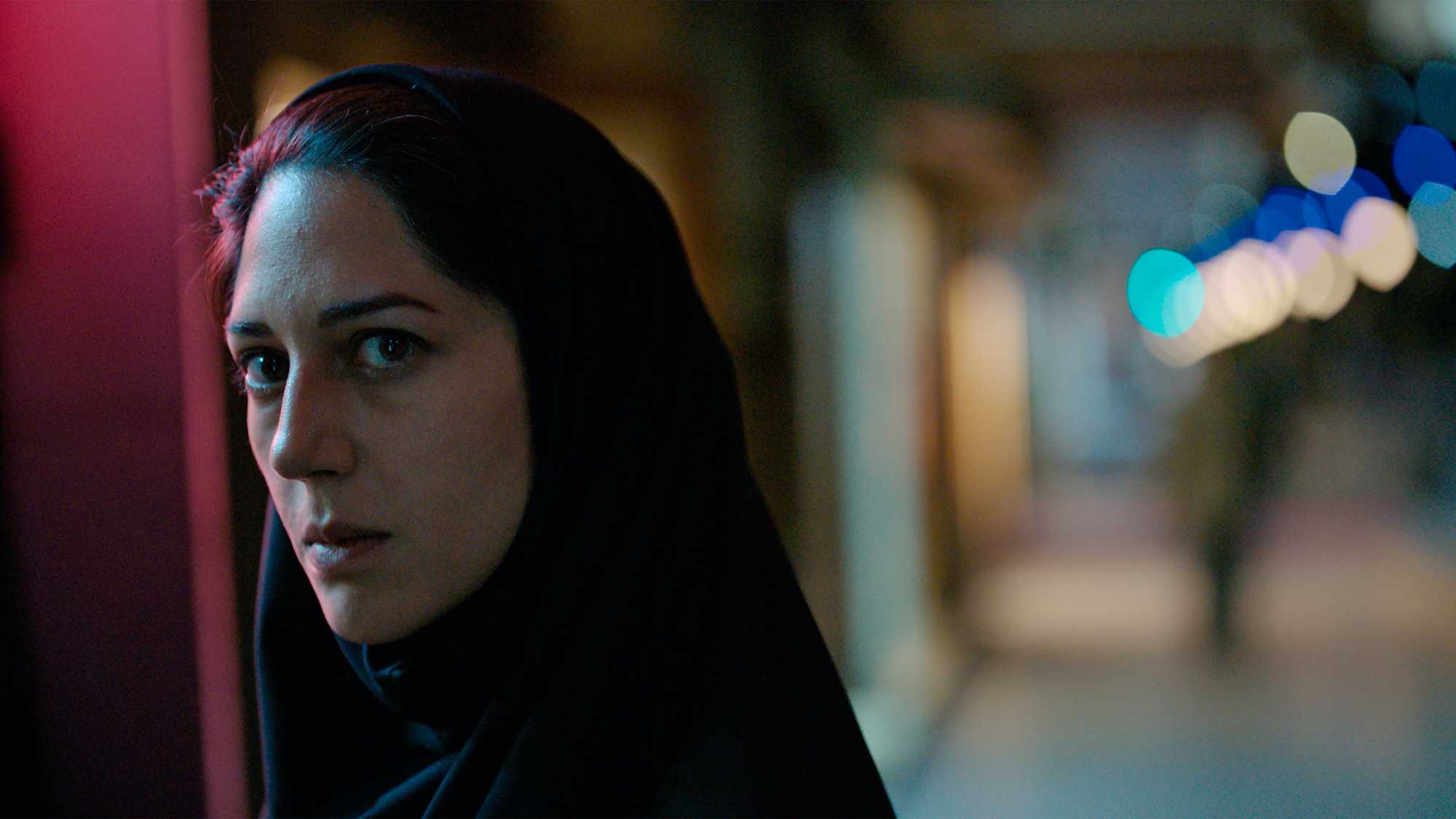A profoundly disturbing crime thriller about the so-called Spider Killer who terrorised sex workers in Iran and the lone journalist who strives for justice in a thoroughly misogynistic society.

An intensely stylish and appropriately troubling film, with stomach-churning murders and a pacy first half that’s reminiscent of David Fincher’s Zodiac.
Screened as part of NZIFF 2023
Holy Spider 2022
Zar Amir-Ebrahimi deservedly won Best Actress honours at the Cannes Film Festival 2022 for her committed portrayal of an intrepid Iranian reporter who risks her own life to capture a serial killer targeting sex workers in Mashhad, Iran in this graphic, true-crime thriller that divided critics and gave rise to heated discussions among the NZIFF programming team.
Audiences familiar with director Ali Abassi’s ingenious, supernatural mind-bender Border (NZIFF 2018) are in for a whole different experience with his latest film. Although the notion of monsters is common to both, Holy Spider’s ogre is both an individual and a society rife with misogyny. Based on a real-life serial killer, Saeed Hanaei, an upstanding Muslim and family man, who strangled 16 sex workers to death over two years during a self-appointed “cleansing” mission, the film is unflinching and visceral. It also introduces a fictional character, Rahimi, a Tehrani journalist hellbent on catching the killer, even if this involves her posing as a prostitute, and thereby putting her own life in danger.
While exposing the sordid underbelly and hypocrisy of a society that hallows religious purity, a stance which nevertheless apparently harbours, if not fosters, prostitution and a drug trade, the film’s effective genre stylings and brutal shocks sometimes seem to indulge in what it purports to decry. Hanaei’s gruesome killings—here depicted in prolonged and disturbing scenes—fascinated the media, and his pronouncements about his maniacal quest found support among hardliners. Abbasi certainly seems more captivated by the killer and his contradictions than his victims, so its left to Zar Amir-Ebrahimi and her terrific performance in dogged pursuit of a killer in the face of general contempt, to bring some hope. — Sandra Reid